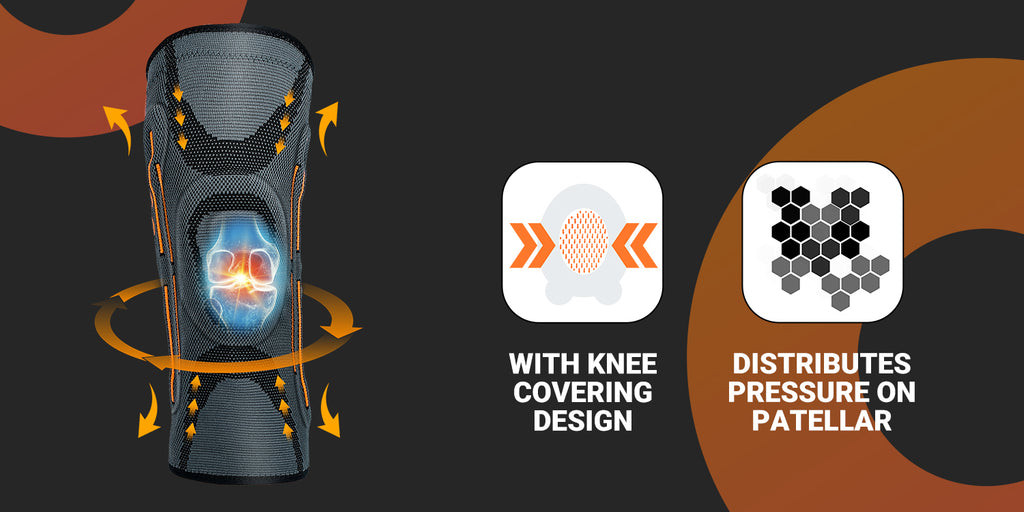What If Your Knees Don't Work?

The function of the knee, as a major articulation of the human body, has a significant influence on the quality with which we live our daily lives. Not only does knee dysfunction limited our range of motion and cause pain and discomfort, but it may also lead to mobility problems, which can seriously affect our quality of life. In this article, Fivali will explore the challenging situation of knee functional disorders with you and propose a comprehensive treatment approach for our patients.
Challenges Faced When Knees Don't Work
Problems caused by abnormal knee function vary from simple pain and discomfort to limited mobility to psychological anxiety. In such cases, the patient's daily life, work and social activities may be greatly restricted. Specificity manifests itself in the form of:
- Mobility Issues: Limited pain and restricted range of movement make it challenging to walk, crawl up stairs, or get on your feet for long periods of the day.
- Pain and Discomfort:The chronic knee pain, swollenness and discomfort can interrupt routine daily activities and lower the overall well-being of your life.
- Physical Activity Limitations: As the inability to participating in sports, exercise or entertainment activities declines, so does physical health and overall well-being.
- Emotional and Psychological Impact: Being angry, sad and depressed with the sense of loss for freedom as well as being incapable of doing the things you used to enjoy.
- Social Restrictions: Difficulty participating in social events, outings, and gatherings owing to mobility limitations and discomfort, resulting in feelings of isolation and loneliness.
- Working and Lifestyle Modifications: The need to modify job obligations and everyday routines to accommodate decreased mobility and physical capacities, which can influence one's career and personal life.
Overcoming knee joint dysfunction required a multi-pillar approach. A mixture of medical treatment, physiotherapy, auxiliary aids and psychological treatment is required to effectively relieve patients' suffering and help them readjust to life.
Coping Strategies and Treatment Options
Knee joint functional disability can be effectively relieved and improved with appropriate response strategy and therapy choices. It is available to patients to actively participate in rehabilitation and regain a healthy knee through a variety of methods.
Physical Therapy: A professional knee rehabilitation physiotherapist can not only help patients with the strength and scope of motion of their deficit knee, but also effectively relieve pain and promote overall rehabilitation. They will render professional guidance and advice according to the patient's actual condition, so that you can regain a healthy life.
Medication: NSAIDs, painkillers and corticosteroid injections are popular approaches to relieving knee complaints and pneumonia. But any medication should be administered under a doctor's direction to assure that it is safe and effective.
Assistive Devices: The use of canes, crutches or knee supports is effective in supporting as well as stabilizing the body, relieving stress on the knee joints, increasing mobility, by helping the recipient to be more Independent in his/her daily activities.
Surgical Interventions: At the extreme end of the continuum, surgical procedures such as arthroscopy, partial knee replacement, or total knee replacement may be required to reinstate compromised cartilage or to have the complete articulation of the kneecap repaired and destroyed as well. These operative interventions are an efficient treatment for serious knee injuries.
Lifestyle Changes: Maintaining a healthy weight through diet and exercise helps lessen knee stress. Swimming and cycling are low-impact activities that can be useful. It is also crucial to avoid activities that aggravate knee pain or stiffness.
Pain Management Techniques: Alternative therapies such as heat or cold therapy, massage, acupuncture, and transcutaneous electrical nerve stimulation (TENS) may provide brief relief from knee pain.
Consultation with healthcare professionals is essential to evaluating the best coping tactics and treatment options based on individual circumstances and the severity of knee dysfunction. Individuals can benefit from a tailored strategy for efficiently managing their condition, improving knee function, and improving their overall quality of life.
Knee Brace

The various types of braces are designed to provide varied degrees of support based on the severity of your injury or condition.
Knee braces are effective in soothing swollen joints by application of compression and heating. At the same time the stability provided by knee pads reduces pain from activities such as walking and running. If you have any questions regarding knee braces, please allow us to know what we can do for you with pleasure and we would be happy to answer them for you!
-
Posted in
Brace, Healthy Lifestyle, Joint













